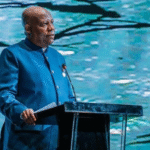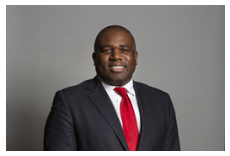By Lamin Guèye
Banjul, The Gambia – Banjul Mayor Rohey Malick Lowe has placed the blame for the Banjul City Council’s (BCC) reported financial mismanagement squarely on the shoulders of the former Chief Executive Officer (CEO) and the former Finance Director, describing them as the “Alpha and Omega” who wielded unchecked authority within the institution.
Testifying before the Local Government Commission of Inquiry (LGCI) on [Insert Date or “recently”], Mayor Lowe asserted that despite her mayoral position, the true power and decision-making authority within the council resided with the former CEO, Mustapha Batchilly, and former Finance Director, Momodou Camara. “In the Banjul City Council, the CEO and the Finance Director are the Alpha and Omega. Whatever they want will happen,” she stated.
When pressed by Lead Counsel Patrick Gomez regarding numerous questionable vouchers bearing her name, many lacking proper documentation or authorization, Mayor Lowe consistently diverted responsibility to the two former officials. She explained, “The CEO only provides me what he wants me to know. If he does not want me to know anything, I won’t know it.”
Key among the controversial payments scrutinized by the lead counsel were:
- D5,000 for family support:Â A payment to a woman allegedly on the Mayor’s instruction, but reportedly without clear decision-making authority.
- D15,000 for chair rentals:Â An amount the Mayor admitted her ignorance about how it was calculated.
- D30,000 for a diplomatic dinner:Â This expenditure for the visit of the Mayor of Ostend included the purchase of sheep, numerous crates of drinks, a Kora gift, and DJ entertainment, all processed through the imprest system, which the Commission has identified as being misused.
- D250,000 for NAYConf:Â With D50,000 specifically allocated for water and refreshments, Mayor Lowe acknowledged she had not verified this figure against the council’s budget.
- D40,000 for Quranic recitation:Â An expenditure the Mayor conceded should not have been paid to her.
Lead Counsel Gomez challenged Mayor Lowe’s understanding of imprest payments, stating that her actions appeared to be “acting as a paying out cashier, which is against the law.” Mayor Lowe responded, “We thought all payments made to me were classified as impress,” adding that this practice has continued to the present day.
Mayor Lowe further accused former Finance Director Momodou Camara of independently authorizing loans to himself and engaging contractors without her knowledge. “He brought people into the council, assigned them roles, and even engaged a company called Sabs for revenue collection in my absence,” Lowe told the Commission, claiming she only became aware of these actions through the public hearings.
In response to a request from the Chairperson of the Commission, Jainaba Bah, for documentary proof concerning loans allegedly taken by Camara and any outstanding balances, Mayor Lowe presented documents showing transactions signed solely by Camara, without the CEO’s co-signature.
When questioned about whether the mayor or the council shared blame for the oversight failures, Mayor Lowe cited a “structural imbalance” that left her powerless. “The powers the CEO and Finance Director have are more than the mayor,” she contended.

Counsel Gomez countered by referencing the Local Government Financial Manual, which outlines defined roles for mayors, CEOs, and councils in authorizing expenditures. He argued that Mayor Lowe’s failure to enforce oversight constituted a breach of her responsibility.
In her response, Mayor Lowe commented, “Lead Counsel, you are talking from the book. I wish what is in the book is what obtains in the council.”
The Commission of Inquiry continues its proceedings to thoroughly investigate the financial dealings of the Banjul City Council.









